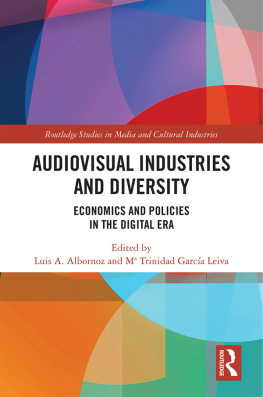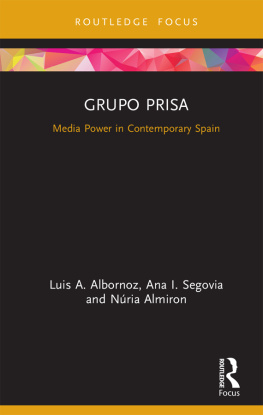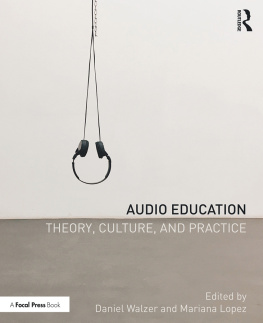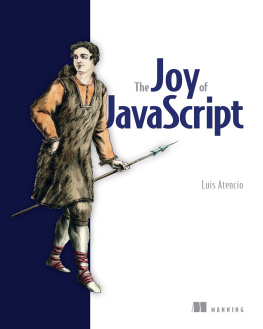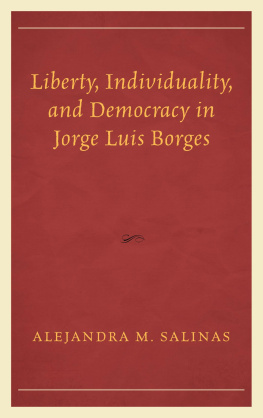Audiovisual Industries and Diversity
This book reflects critically on issues of diversity, access and the expansion of digital technologies in audiovisual industries, particularly in terms of economics and policies.
It brings together specialists in cultural diversity and media industries, presenting an international and interdisciplinary collection of essays that draw from different fields of studies notably Communication, Economics, Political Science and Law. Among the topics discussed are the principle of diversity as a goal of cultural and communication policies; the assessment of the UNESCO Convention on Cultural Diversity; free trade agreements and the conception of the cultural goods and services they advance; the challenges faced by the production, circulation and consumption of cultural content through the Internet; the role algorithms play in the organization and functioning of online platforms; Netflix; and the hegemony of global media. The approach is a critical understanding of audiovisual diversity that aims to transcend specific issues, like media ownership, ideas portrayed or modes of consumption as such, to focus on a more balanced distribution of communicative power.
This volume is an essential read for scholars and researchers in Communication Studies, Economy of Culture, International Relations and International Law as well as policymakers, journalists specializing in media and culture, and managers of public and private institutions involved in the development of cultural and communication policies. Postgraduate students will find it a key reference point.
Luis A. Albornoz is Associate Professor in the Department of Journalism and Audiovisual Communication, Carlos III University of Madrid, Spain, and Researcher at the Argentinian Scientific and Technical Research Council (CONICET). He is also founding partner and former president (20072013) of the international scientific association Latin Union of Political Economy of Information, Communication and Culture (ULEPICC).
M Trinidad Garca Leiva is Associate Professor in the Department of Journalism and Audiovisual Communication, Carlos III University of Madrid, Spain. She has been a visiting researcher at the Centre for Cultural Policy Research, University of Glasgow (2009), and the Programme in Comparative Media Law and Policy, Centre for Socio-Legal Studies, University of Oxford (2005). She is Co-Director, with Professor Albornoz, of the research group on Audiovisual Diversity.
Routledge Studies in Media and Cultural Industries
1 Community Filmmaking
Diversity, Practices and Places
Edited by Sarita Malik, Caroline Chapain and Roberta Comunian
2 Reconceptualising Film Policies
Edited by Nolwenn Mingant and Cecilia Tirtaine
3 Asia-Pacific Film Co-productions
Theory, Industry and Aesthetics
Edited by Dal Yong Jin and Wendy Su
4 Audiovisual Industries
and Diversity
Economics and Policies in the Digital Era
Edited by Luis A. Albornoz and M Trinidad Garca Leiva
First published 2019
by Routledge
52 Vanderbilt Avenue, New York, NY 10017
and by Routledge
2 Park Square, Milton Park, Abingdon, Oxon OX14 4RN
Routledge is an imprint of the Taylor & Francis Group, an informa business
2019 Taylor & Francis
The right of Luis A. Albornoz and M Trinidad Garca Leiva to be identified as the authors of the editorial material, and of the authors for their individual chapters, has been asserted in accordance with sections 77 and 78 of the Copyright, Designs and Patents Act 1988.
All rights reserved. No part of this book may be reprinted or reproduced or utilised in any form or by any electronic, mechanical, or other means, now known or hereafter invented, including photocopying and recording, or in any information storage or retrieval system, without permission in writing from the publishers.
Trademark notice: Product or corporate names may be trademarks or registered trademarks, and are used only for identification and explanation without intent to infringe.
Library of Congress Cataloging-in-Publication Data
Names: Albornoz, Luis, editor. | Garcia Leiva, Ma. Trinidad (Maria Trinidad) editor.
Title: Audiovisual industries and diversity : economics and policies in the digital era / edited by Luis A. Albornoz and Ma Trinidad Garcia Leiva.
Description: London ; New York : Routledge, 2019. |
Series: Routledge studies in media and cultural industries ; 4 |
Includes bibliographical references and index.
Identifiers: LCCN 2018059429 (print) |
LCCN 2019003428 (ebook)
Subjects: LCSH: Multiculturalism in mass media. |
Cultural pluralism in mass media. | Mass mediaSocial aspects. | Mass mediaEconomic aspects.
Classification: LCC P96.M83 (ebook) | LCC P96.M83 A93 2019 (print) | DDC 302.2308dc23
LC record available at https://lccn.loc.gov/2018059429
ISBN: 978-1-138-38445-3 (hbk)
ISBN: 978-0-429-42753-4 (ebk)
Typeset in Sabon
by codeMantra
For our loved ones.
Words will never be enough to thank them for their patience and caring support.
Somewhere, Over the Rainbow, Diverse Diversity
M Trinidad Garca Leiva and Luis A. Albornoz are among the leading communications and cultural studies scholars of our day, alongside their colleagues in the distinguished Diversidad Audiovisual research group based at Carlos III University of Madrid.
This new collection, Audiovisual Industry and Diversity: Economics and Policies in the Digital Era, which you are either holding in your hands or scrolling through on your screen, is a remarkable collaborative work. The editors have curated a wide array of papers, derived from either neoclassical or critical political economy and designed to increase the democratic potential of the digital. Authors from the Americas to Western Europe provide us with a generously cosmopolitan account of issues that are both contemporary and long-standing.
Some of the excellent chapters gathered here are in thrall to neoclassical economics. These agile and fascinating accounts borrow from the theory of the firm to explain both public conduct and the public interest. They do not engage democracy, history, anthropology, sociology or political theory, and Marxism is definitely hors de combat. Other chapters, by contrast, eschew the neoclassical in favour of interdisciplinary and empirical work. Readers have the opportunity to interpret these varying methods, theories and commitments through their own lenses and see whether it is feasible or desirable for the neo-liberal approach to culture to intersect with more social ones. Thats diversity, right?
As the editors say, that word diversity is an immensely complex one. At the time of writing, I work in three countries Australia, Colombia and Britain. All three places have cultural and communications policies dedicated to diversity in very different ways.
Australia boasts a national television network for indigenous peoples, largely funded by the state. This is a recognition of both the historical dispossession of the nations original inhabitants by its colonists and the failure of both commercial and public broadcasters to engage with relevant labour, themes and interests (Dibley and Turner 2018).

